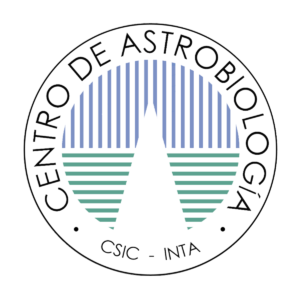
The Spanish Virtual Observatory (SVO [1]) is an initiative whose main goal is to promote, coordinate and develop the activities related to the Virtual Observatory (VO) in Spain. In this context, one of the main tasks of the SVO has been the organization of schools and workshops aiming at disseminating the possibilities that the Virtual Observatory offers in Astrophysical research. Since 2009, the SVO has organized a total of 20 schools mainly targeting the professional community.
The relation of the SVO with the amateur community has years of history. Taking advantage of its know-how in the management and distribution of astronomical information, SVO has developed data archives for the amateur community. Examples of this are the archive of the Astronomical Observatory of Cartagena [2], the SASDABA archive [3], that provides access to spectroscopic data of bright stars observed in the context of a project led by the Astronomical Observatory of Garraf, or the data archive for the European project Stars4all [4]. In parallel, the SVO has been actively collaborating in Pro-Am projects like the detection of common proper motion binary systems [5] or the identification of neglected double stars. [5]
Recently, the Pro-Am commission of the Spanish Astronomical Society (SEA), in collaboration with the Federation of Astronomical Associations in Spain (FAAE), carried out a survey aiming at better knowing the type of collaborations between the professional and amateur communities in Spain. One of the questions in the survey was focused on the knowledge and use of the tools and services of the Virtual Observatory by the amateur community. The analysis of the results (more than 80% of the amateur community has never used VO tools but more than 70% of the ones polled would like to know how to use them) clearly indicated the need of organizing a VO training workshop specifically oriented towards the amateur community. This was the origin of the XX SVO school [6].
The school took place between the 15th and the 18th November 2021 and was online. There were more than 110 registered participants belonging to more than 40 astronomical associations in Spain spread over 25 Spanish provinces. Some members of the Spanish educational community and researchers joined. Also showed interest people from Latin America astronomical associations and universities, specially from Mexico but also from Argentina, Brazil, Cuba, Guatemala and Nicaragua.
The participation in the online sessions was high during the four days. During them and using tutorials based on real science cases, participants became familiar with the main functionalities of the most frequently used Virtual Observatory tools (Aladin, TOPCAT, VOSA). Overall the school was rated excellent by the participants. Also important to highlight is the almost unanimous interest on keeping using the newly learned tools after the school, and the request of a new school in the near future with more advanced contents.
Events like the XX SVO school, which puts at the disposal of the amateur community resources and tools used by the professional community on the daily research, as well as the development of archives that provide visibility to the results obtained through the Pro-Am collaborations are, without a doubt, excellent initiatives to strengthen the liaison between both communities.
Links of interest:
- [1] Spanish Virtual Observatory (SVO):: https://svo.cab.inta-csic.es Twitter: @ObsVirtEsp
- [2] Archive of the Astronomical Observatory of Cartagena: https://sdc.cab.inta-csic.es/ObCP/
- [3] SASDABA’s archive: https://sdc.cab.inta-csic.es/sasdaba/
- [4] Stars4All archive: http://sdc.cab.inta-csic.es/pdd/jsp/tessindex.jsp









